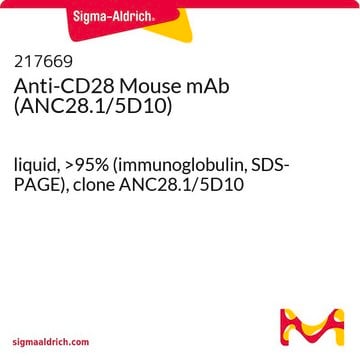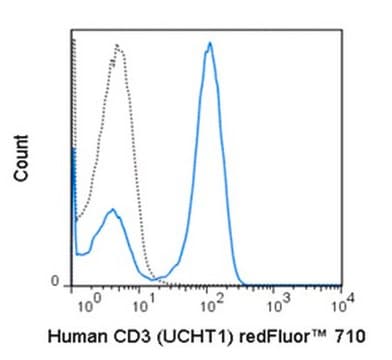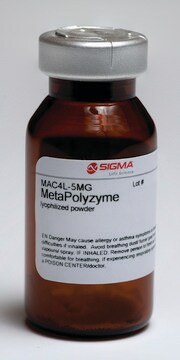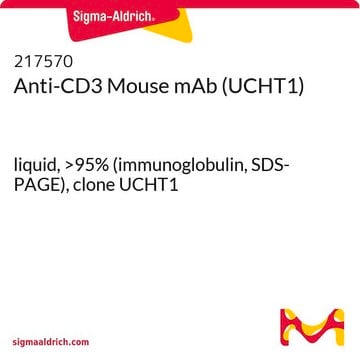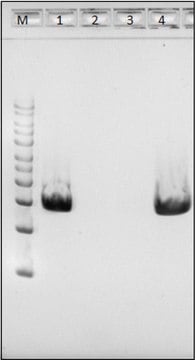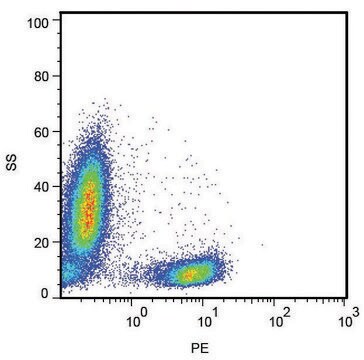C7831
Anti-CD28 antibody, Mouse monoclonal
clone CD28.2, purified from hybridoma cell culture
Sinónimos:
Monoclonal Anti-CD28
About This Item
Productos recomendados
biological source
mouse
Quality Level
conjugate
unconjugated
antibody form
purified immunoglobulin
antibody product type
primary antibodies
clone
CD28.2, monoclonal
form
buffered aqueous solution
mol wt
antigen 44 kDa
species reactivity
human, rhesus monkey
technique(s)
flow cytometry: 5 μL using 1 × 106 cells
immunocytochemistry: suitable
immunohistochemistry (frozen sections): suitable
isotype
IgG1
UniProt accession no.
shipped in
wet ice
storage temp.
2-8°C
target post-translational modification
unmodified
Gene Information
human ... CD28(940)
¿Está buscando productos similares? Visita Guía de comparación de productos
General description
Specificity
5th Workshop: code no. CD28.05.
Immunogen
Application
- Flow cytometry at a dilution of 5μL using 1 × 106 cells
- Immunocytochemistry
- Immunohistochemistry (frozen sections)
Biochem/physiol Actions
Target description
Physical form
Disclaimer
¿No encuentra el producto adecuado?
Pruebe nuestro Herramienta de selección de productos.
Storage Class
10 - Combustible liquids
wgk_germany
WGK 3
flash_point_f
Not applicable
flash_point_c
Not applicable
Certificados de análisis (COA)
Busque Certificados de análisis (COA) introduciendo el número de lote del producto. Los números de lote se encuentran en la etiqueta del producto después de las palabras «Lot» o «Batch»
¿Ya tiene este producto?
Encuentre la documentación para los productos que ha comprado recientemente en la Biblioteca de documentos.
Nuestro equipo de científicos tiene experiencia en todas las áreas de investigación: Ciencias de la vida, Ciencia de los materiales, Síntesis química, Cromatografía, Analítica y muchas otras.
Póngase en contacto con el Servicio técnico
